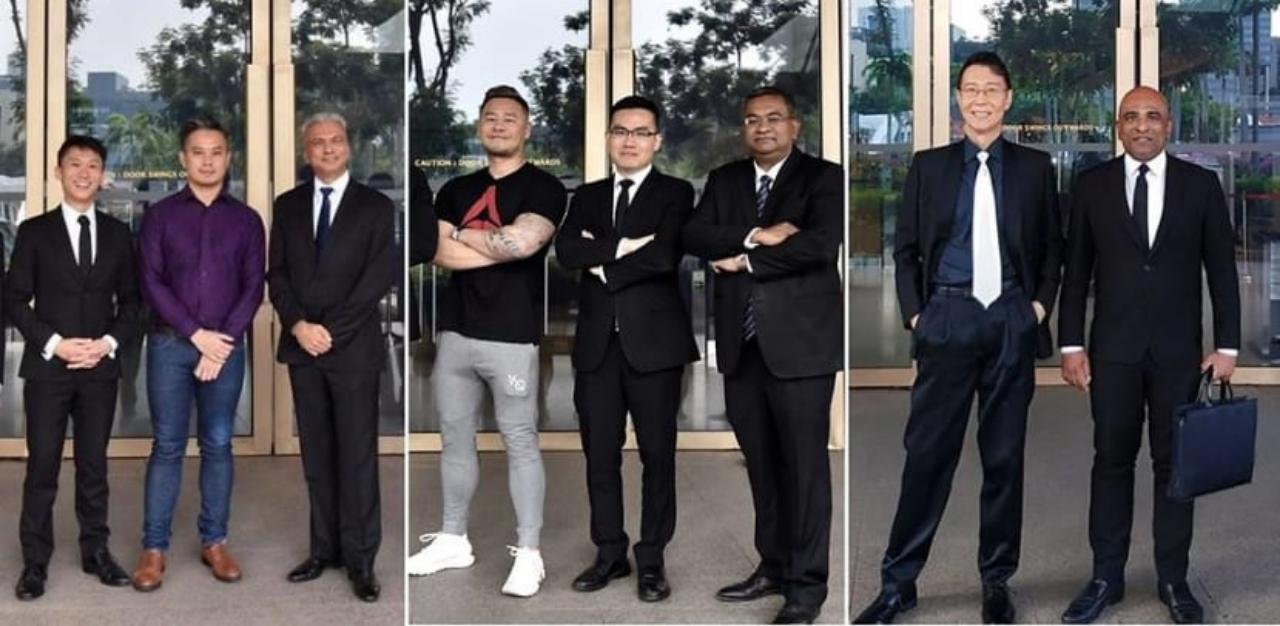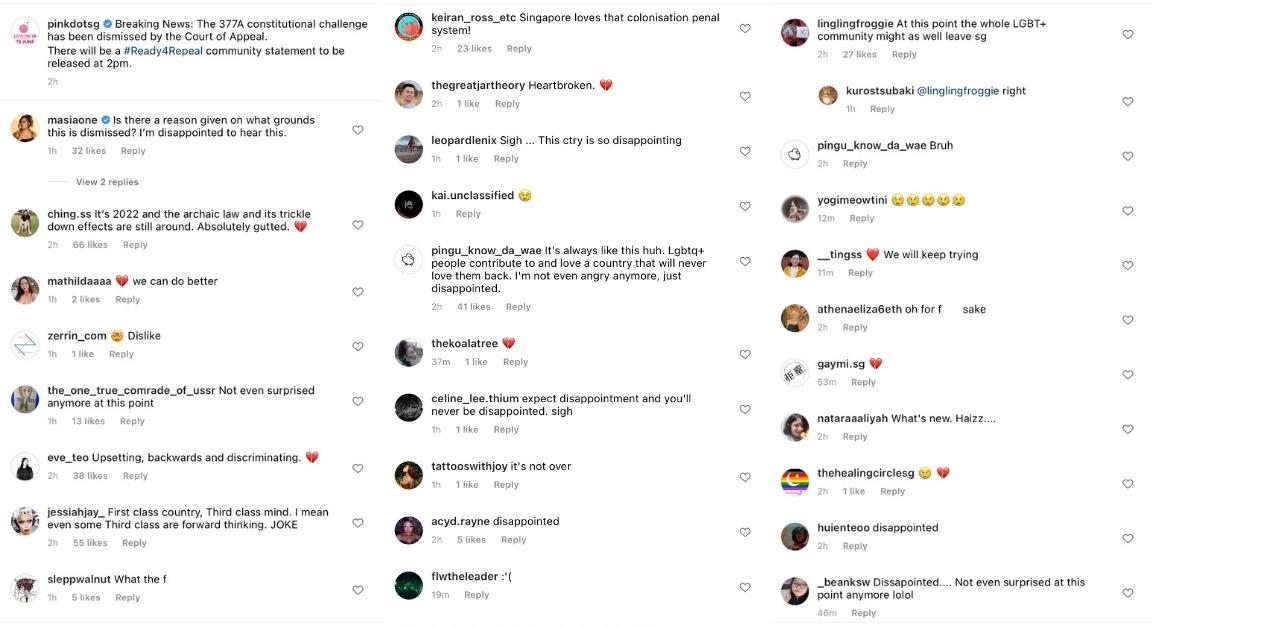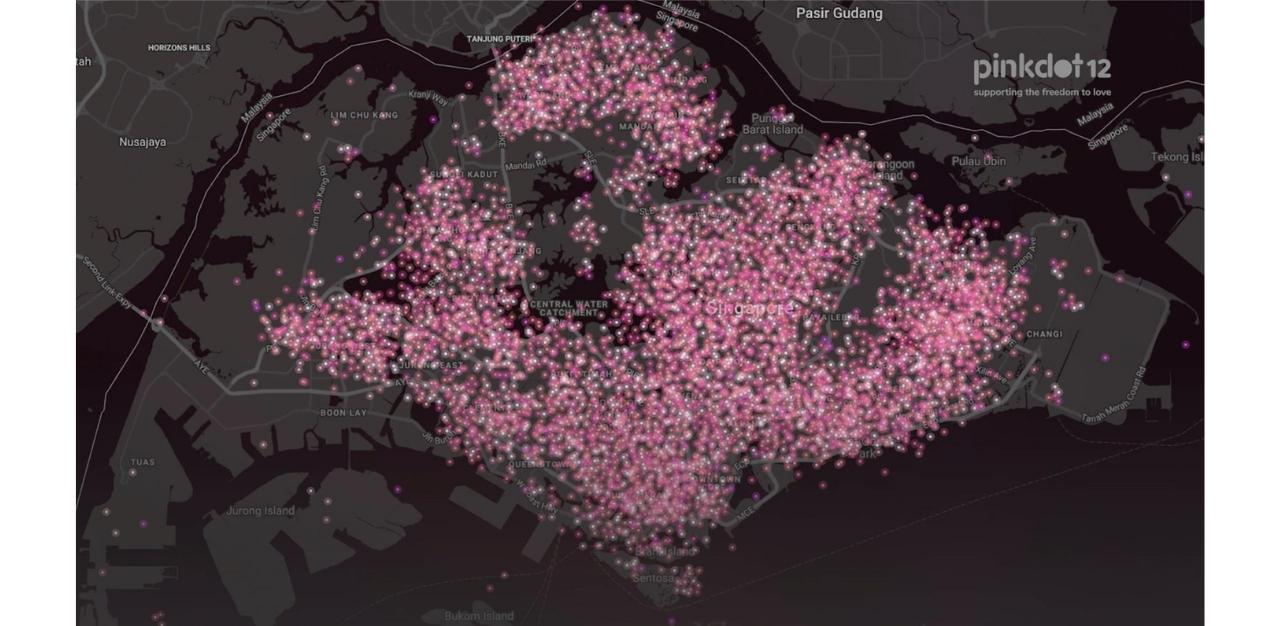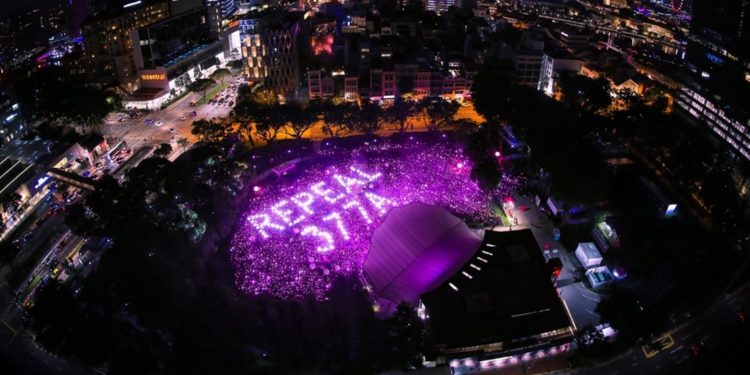[UPDATE 1 March 2022: We have updated the article with a response from Mr Johnson Ong, one of the appellants.]
Pink Dot SG will continue advocating for the full removal of Section 377A of the Penal Code through its on-going engagement with the Government and will work with the other community groups to tackle head on the trickle-down effects of the law that criminalises sex between consenting men.
The not-for-profit movement is reacting to Singapore’s highest court, the Court of Appeal, upholding a lower court’s decision to dismiss three challenges to Section 377A.
The challenges were mounted by disc jockey Johnson Ong Ming, retired general practitioner Roy Tan Seng Kee and former executive director of LGBT non-profit organisation Oogachaga Bryan Choong Chee Hoong.

In its response to TheHomeGround Asia, Pink Dot SG says, “This ruling will no doubt embolden discriminatory behaviour and entrench prejudicial views, and so attending to the mental health and well-being of the community is our first and foremost priority.”
In a statement to the media, Pink Dot SG calls the dismissal by the Court of Appeal “a devastating blow to Singapore’s LGBTQ+ community”, since the court has chosen “instead to side-step the issue and leave the law intact”.
Section 377A
Section 377A is a legacy of Singapore’s colonial past, introduced into the nation’s Penal Code in 1938. The law specifically criminalises sex between consenting male adults and reads:
“Any male person who, in public or private, commits, or abets the commission of, or procures or attempts to procure the commission by any male person of, any act of gross indecency with another male person, shall be punished with imprisonment for a term which may extend to 2 years.”
Around the world, Section 377A has since been repealed in the United Kingdom (where the law originated), Hong Kong, Australia and India.
In East and South-east Asia, only Singapore, Myanmar, Malaysia, Brunei and Indonesia’s Aceh province continue to criminalise sexual activity between men.
Despite the many arguments advanced by the appellants about the harmful effects of Section 377A, the judges at the Court of Appeal “narrowly honed in on the uncertainty and untidiness of the government’s political promise of non-enforceability”, PinkDot SG says in its statement.
As such, while the ruling clarified the constitutionality of the government’s compromise, it has left the LGBTQ+ community behind yet again, without any adequate remedy or relief from the ongoing discriminatory effects of Section 377A, it adds.
In dismissing the appeal, Chief Justice Sundaresh Menon said on behalf of a five-judge panel that “although Section 377A was retained in our statute books, this was on the terms that it would not be proactively enforced”, and that the Government has assessed that “society has yet to adequately integrate the opposing views of mainstream conservatives and the homosexual community”, and that “forcing the issue would polarise those who are presently willing to live and let live”.
The court also added that retaining Section 377A in 2007 after abolishing its mother statute Section 377 was an attempt to address “a deeply divisive socio-political issue in a pragmatic way”, and as a “political compromise to strike a careful balance between the opposing interests of various groups”.
With the curtains falling on the latest challenge, the ball is now back in Parliament’s court for lawmakers to determine if and when to repeal Section 377A.
Minister for Law and Home Affairs K Shanmugam has reiterated on multiple occasions that LGBTQ+ persons would be protected, adding that “we are not any lesser by reason of our sexual preferences”.
But more recently, Finance Minister Lawrence Wong promised that the government would do its utmost to “recognise the challenges and needs of different groups”. He vowed that the government would “never let any group feel unheard, ignored or excluded.”
Profoundly disappointed, Pink Dot SG says the acknowledgement that Section 377A is unenforceable only in the prosecutorial sense “is cold comfort”. “Section 377A’s real impact lies in how it perpetuates discrimination across every aspect of life: at home, in schools, in the workplace, in our media, and even access to vital services like healthcare,” it writes.
Pink Dot SG is also deeply troubled by how it was cited by the Court as an example of how Section 377A does not “generate a chilling effect that stifles advocacy”. “Pink Dot SG and other LGBTQ+ rights advocates exist in spite of impediments like Section 377A, and we should never be used as examples to minimise their impact or justify their retention,” it says.
“Today’s ruling is frustrating for those who were hoping for some real change.” says Pink Dot SG’s spokesperson Clement Tan. “Despite acknowledging that gay men should be able to live freely in Singapore, without harassment or interference, the court still hesitated to strike it down. It now falls on Parliament to deal the final blow to Section 377A.”
Allowing 377A to remain on our books is incompatible with these promises, and our nation’s purported values of justice and equality. It is time for our leaders to go beyond maintaining uneasy compromises and take affirmative steps towards equality, he adds.
The constitutionality of Section 377A has been challenged multiple times in 2010, 2012 and 2018 and all of them have failed.
But that did not stop the three men from trying again after the High Court dismissed their appeal four years ago.
They argued that when the law was introduced, the intention was to combat rampant male prostitution in the 1930s and it has since lost its relevance in Singapore today. Another argument is based on expert scientific evidence on sexual orientation that homosexuals cannot wilfully change their orientation and as such, Section 377A is discriminatory and violates the Constitution.
Expressing his disappointment with the outcome of the appeal, Mr Ong, who is also the co-founder and director of digital marketing agency BZNZ, says in an email to TheHomeGround Asia that “the ruling does not mean the end of the community’s pursuit for equality”.
He reiterates the devastating impact of S377A on the mental and physical well-being of the LGBTQ+ community, saying it “encourages discriminatory treatment towards queer people and denies the equal rights and protection that LGBTQ+ Singaporeans deserve”.
“This antiquated law undermines the principle of equality in our modern and diverse society. Although the non enforcement of S377A offers a small step towards the LGBTQ+ community’s freedom from discrimination and oppression, it will take more time before the LGBTQ+ community finds full recognition and acceptance by policymakers and society. It has always been an uphill struggle for the community but we will not stop making progress in our fight for a genuinely open and inclusive Singapore,” he adds.
Netizens React
When news of the dismissal broke out on Monday (28 February) morning, there were mixed reactions from netizens who were largely been one of disappointment, although there were also voices of support for the retention of the law.
On Pink Dot SG’s Instagram page, ching.ss commented, “It’s 2022 and the archaic law and its trickle down effects are still around. Absolutely gutted.”
Another, eve_teo, posted “(the decision) was upsetting, backwards, and discriminating”.
pingu_know_da_wae, added that “It’s always like this huh. LGBTQ+ people contribute to and love a country that will never love them back. I’m not even angry anymore, just disappointed”.
But Dawn Ge felt it is a “wise decision to retain S377A. Thank you”.

Pink Dot SG tells TheHomeGround Asia, “The burden of fighting discrimination shouldn’t fall solely on the discriminated. We encourage the majority to play a more active role in speaking up for the LGBTQ+ community and call out discriminatory practices and bigoted speech when they see it. We encourage them to reach out to their LGBTQ+ friends and family today to show their support and solidarity,” it says.
Pink Dot will continue to advocate for a more inclusive Singapore through its annual event and will return on 25 June to make a stand against discrimination.

But the question remains: Why have a piece of legislation that not only will not be executed, but continues to deeply divide the community, when Singapore seeks to be an inclusive society, where mutual respect and tolerance for different views and practices are paramount?
TheHomeGround Asia addresses this in Unwrapped: Why 377A stays and how communities can better accept one another
Join the conversations on TheHomeGround Asia’s Facebook and Instagram, and get the latest updates via Telegram.














